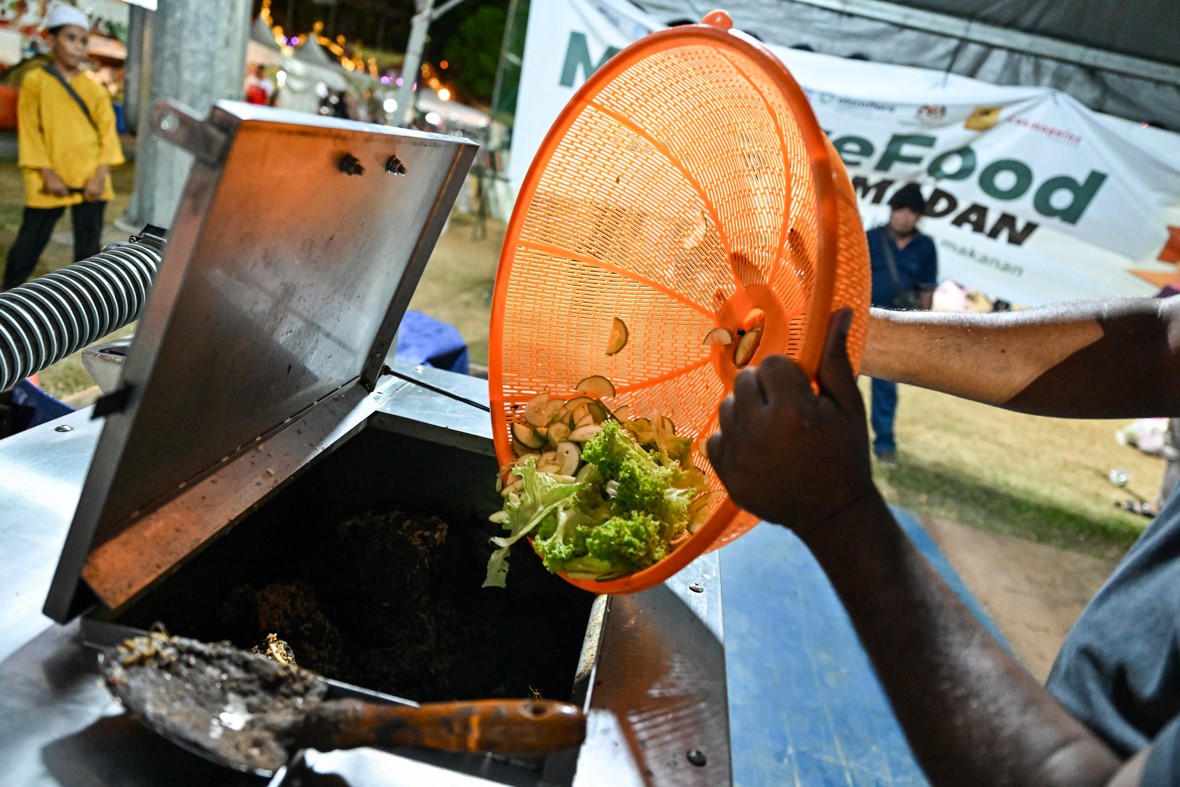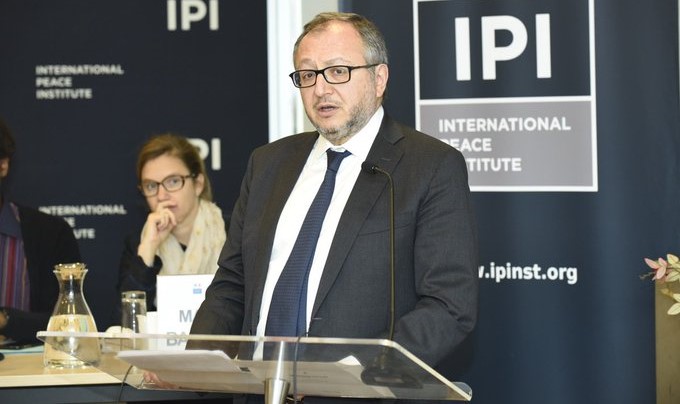Malaysian state converts Ramadan food waste into fertiliser

Food scraps are thrown into the machine where they are slowly mixed with rice husks and sawdust for 48 hours.
After breaking their Ramadan fast outside a mosque in Malaysia, people throw their leftovers into a machine that converts the food scraps into organic fertiliser for crops.
The modest government initiative in the central state of Pahang aims to reduce wastage, especially during the Muslim holy month when huge amounts of food are thrown away daily.
More To Read
- Southeast Asia faces catastrophic floods as tropical storm kills 600 hundred
- Kenya, Malaysia sign landmark deals to boost trade, tourism and technology cooperation
- Kenya courts Malaysia’s economic lessons as PM Anwar makes first official visit
- Ruto hails agricultural reforms, cites registration of seven million farmers in digital drive
- Africa’s food security challenge: G20 calls for boost in trade and sustainable farming solutions
- World Bank warns soaring fertiliser prices could drive up Kenya’s food production costs
The mobile machine has been deployed at a park in the heart of the state capital Kuantan during Ramadan where many families gather every evening to feast on affordable local dishes after a day of fasting.
It processes 25 kilogrammes (55 pounds) of scraps a day, said Sharudin Hamid, the state director of Solid Waste and Public Cleansing Management Corporation, which started the pilot project last year.
The amount is a fraction of the more than 13,000 tonnes of food sent to landfills around the Muslim-majority country every day, even more during Ramadan, but Sharudin said it was helping to increase awareness about food wastage.
"The main objective is to ensure that the waste is not sent to landfills," Sharudin told AFP.
Environmental conservation
"This has had a significant impact on us, as people are becoming more aware of environmental conservation, especially in terms of food waste reduction."
Food scraps are thrown into the machine where they are slowly mixed with rice husks and sawdust for 48 hours.
 This picture taken on April 3, 2024 shows a Ramadan bazaar trader throwing food waste into a composting machine in Kuantan, Malaysia's Pahang state. (Photo: Mohd RASFAN / AFP)
This picture taken on April 3, 2024 shows a Ramadan bazaar trader throwing food waste into a composting machine in Kuantan, Malaysia's Pahang state. (Photo: Mohd RASFAN / AFP)
The brownish-coloured waste is then packaged and given to farmers to use as fertiliser on their crops.
"Things that grow from that fertiliser can also become food, which again can be composted into fertiliser. So there's a natural cycle," said Abdul Shukor Mohamad Salleh, 27, as he bought local delicacies at a Ramadan food market in Kuantan, one of many across the country.
On her small plot near the city, Zulyna Mohamed Nordin, 53, sprays organic liquid fertiliser derived from recycled food waste on her vegetable, banana and pineapple crops.
She receives 30 kilograms of fertiliser every month and slightly more during Ramadan.
"I have done away from using expensive chemical inputs since June last year. This is natural, organic, and boosts productivity," Zulyna told AFP.
"My leafy vegetables are bigger and greener."
Top Stories Today
















































